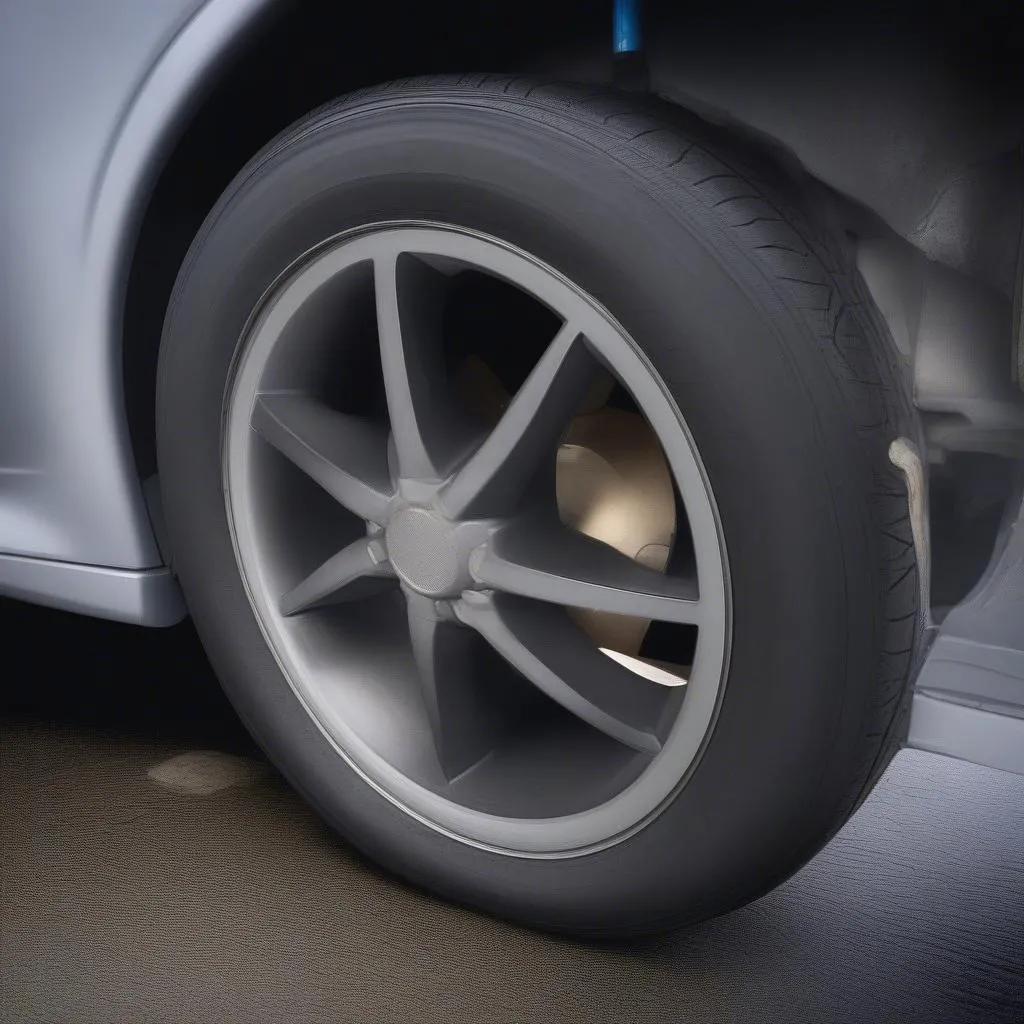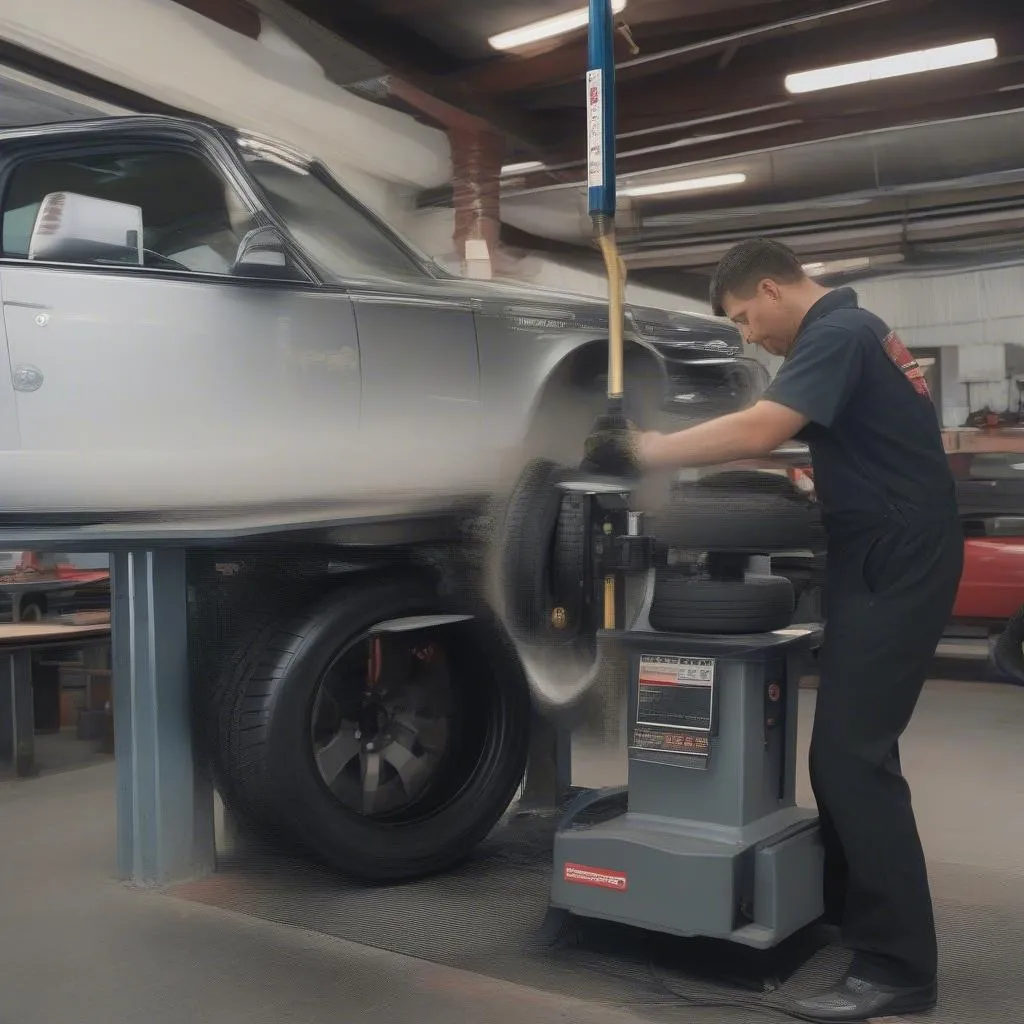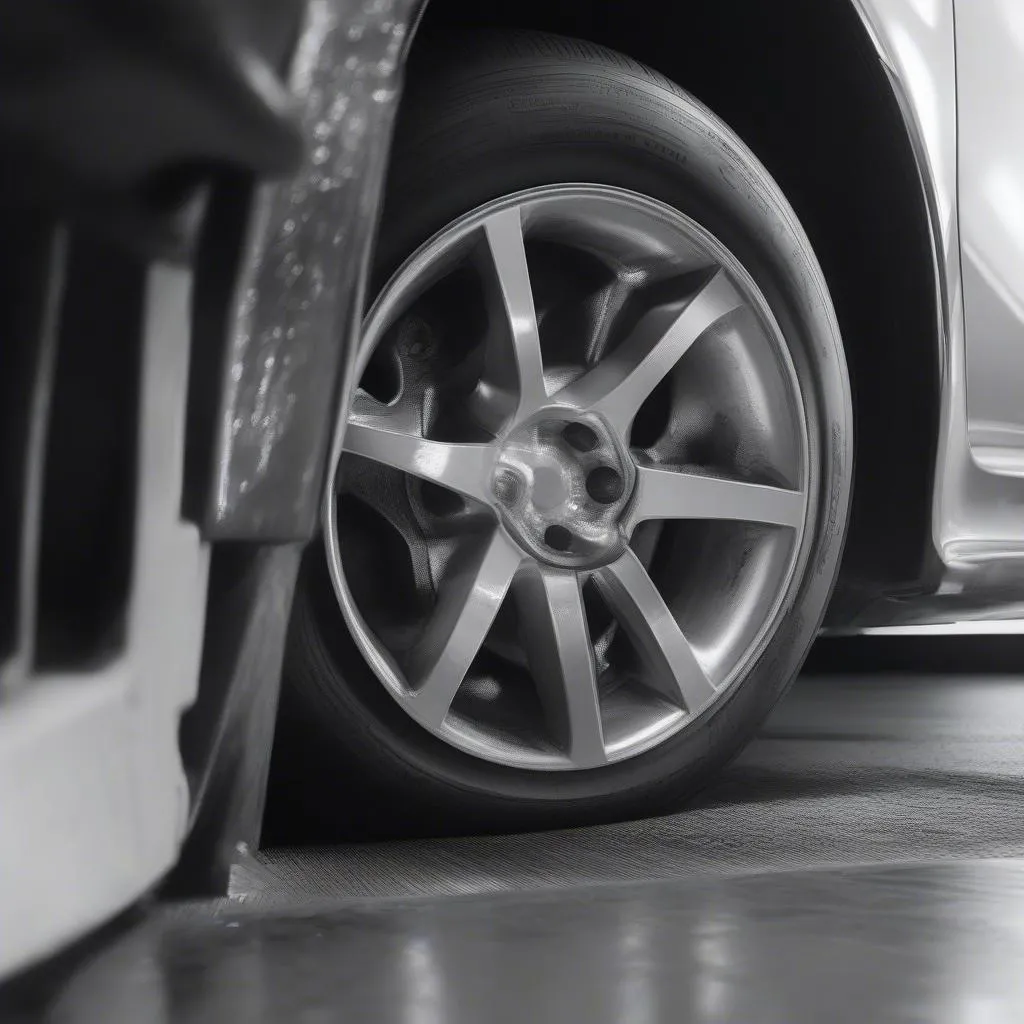Have you ever gotten a new set of tires, only to find that your car is now vibrating? It can be a frustrating experience, especially if you’re not sure what’s causing the problem. You might be wondering, “Why is my car shaking after I got new tires?” Well, you’re not alone. This is a common issue, and it can be caused by a variety of factors. In this article, we’ll delve into the reasons why you might be experiencing vibrations after getting new tires and provide some solutions to fix the problem.
Why Do My Tires Vibrate After New Tires?
Think of your car’s tires as the foundation for a smooth ride. When they’re out of balance, it’s like driving on a wobbly table. The vibrations you feel are the car’s response to this imbalance.
The Root of the Problem: Tire Balance
One of the most common reasons for vibrations after new tires is improper tire balancing. When tires are mounted and balanced, specialized machines ensure they’re perfectly balanced.
This balance prevents uneven wear and tear on the tires, which can lead to vibrations. However, even the best technicians can make mistakes, or the tires may become unbalanced over time.
Wheel Alignment
Wheel alignment is crucial for a comfortable ride. If your wheels are not aligned correctly, it can affect the way your tires contact the road, causing vibrations.
Other Possible Culprits
While tire balance and wheel alignment are the most common culprits, other factors can contribute to vibrations:
- Damaged tires: Even brand new tires can have hidden defects or damage that can cause vibrations. This is why it’s important to get your tires inspected by a professional.
- Damaged wheel rims: Bent or cracked rims can throw off the balance of your tires and lead to vibrations.
Common Questions:
- Why is my car shaking at highway speeds?
- Why does my car shake after 60 mph?
- Why do my new tires shake at high speeds?
- Why do my tires vibrate after new tires and alignment?
- Why is my car shaking at low speeds after new tires?
- Why does my car shake when I brake after new tires?
What to Do If Your Car Is Vibrating After New Tires
If your car is vibrating after new tires, there are a few steps you can take to fix the problem:
- Get your tires re-balanced: The first step is to take your car to a reputable tire shop and have your tires re-balanced.
- Have your wheels aligned: If re-balancing doesn’t solve the problem, you may need to have your wheels aligned.
- Inspect your tires for damage: If the vibration persists, you may have a damaged tire or rim.
Expert Opinion
“The most common cause of tire vibration is improper tire balance.” – Dr. Alex Miller, Automotive Engineering Expert, “The Complete Guide to Tires”.
Case Study: The Ford Focus and the Vibrations
Imagine this: John, a Ford Focus owner, just got a new set of tires. He was excited to hit the open road, but his excitement quickly turned to frustration when he noticed a constant vibration that started around 60 mph. John took his car back to the tire shop, and the technician re-balanced the tires. The vibration was gone!
Preventing Vibrations in the Future
To prevent vibrations after new tires, it’s essential to:
- Get your tires balanced regularly: This will help to ensure that your tires stay in balance.
- Have your wheels aligned: Regular wheel alignments will help to keep your tires in alignment.
- Inspect your tires: Regularly inspect your tires for any signs of damage.
Other Related Articles
If you’re looking for more information on this topic, check out our other articles:
- Car Shakes After New Tires and Alignment
- Tire Vibration at Low Speeds
- Car Shaking After New Tires
- Car Shaking After 60 MPH
- New Tires Shaking at Highway Speeds
Need Help?
If you’re still having trouble with tire vibrations, don’t hesitate to contact our team at Whatsapp: +84767531508. We have a team of automotive experts available 24/7 to help you troubleshoot any issues.
Conclusion
Getting new tires should be a cause for celebration, not frustration. While tire vibrations are a common issue, they can often be resolved with a simple re-balance or alignment. Remember to get your tires inspected regularly to prevent problems before they arise.
If you’re still experiencing vibrations after trying these solutions, it’s best to consult a professional mechanic. They can diagnose the issue and recommend the best course of action.
Share your experience with us! Have you ever encountered tire vibrations after getting new tires? What did you do to fix the problem? Let us know in the comments below!
 Vibrating Tires
Vibrating Tires
 Tire Balancing Machine
Tire Balancing Machine
 Wheel Alignment
Wheel Alignment